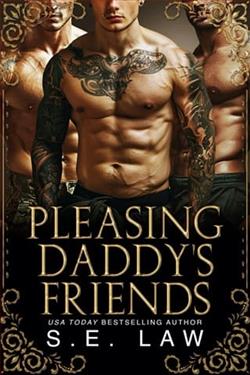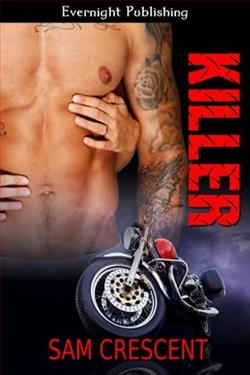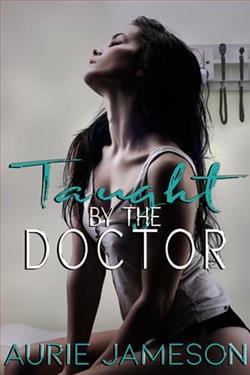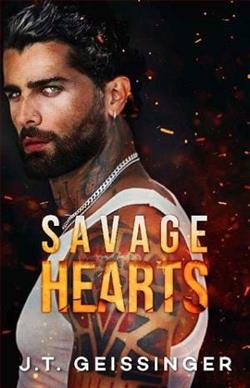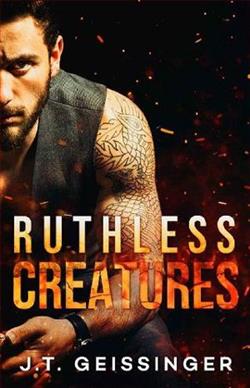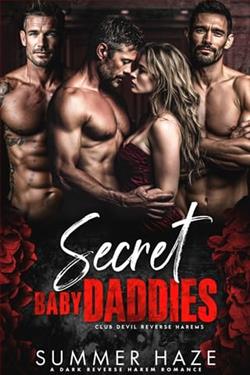Page 128 of Darkness Bound (Night Prowler 5)
So whoever was calling his name could go right on doing so until his tongue fell out. Hawk wasn’t moving from this spot. A rock sailed over the edge of the porch railing, bounced off the mattress, and landed in the middle of his chest with a painful thud.
He leapt up with a muttered oath, rock in hand, and went to the railing, snarling in fury. He leaned over, arm cocked back to retaliate, but restrained himself when he saw who it was.
“The Queen wants to see you,” said Zaca, peering up at him from the forest floor below. “Says it’s important.”
The Queen. Another strategic planning meeting, no doubt. He didn’t know why their enemies hadn’t attacked yet, but when they got here, they were in for a big bloody surprise, he knew that.
The story of what Hope and Honor had done to Caesar had spread like wildfire through the colony. People were talking about them as if they were weapons of mass destruction, which Hawk thought they probably were. When he wasn’t thinking about Jacqueline, he was thinking about Olivia Sutherland’s face when she said “The children can take care of themselves.”
Gave him the willies. Didn’t matter, though. Everything that mattered had walked out of his life. And didn’t even remember him, anyway.
Zaca waved his hands overhead. “Hey—you listening to me, old man?”
Hawk didn’t even have the energy to return the playful insult with one of his own. He nodded and withdrew, leaving Zaca to stare up with a worried look, until he wandered off, hands stuffed into the pockets of his shorts.
Hawk dressed in no particular hurry, then headed out.
When he arrived at the Queen’s residence, he was welcomed by Morgan. “Has your shoulder healed yet?” she asked, her expression revealing nothing.
He nodded. “Why?”
“Oh, just wondering. C’mon in.” He followed her through the house to the living room, where Leander was standing with his arms crossed, behind Jenna, on the settee. Both of them were staring at a satellite television screen.
The image on the screen was frozen. It was Jacqueline.
She stood behind a Plexiglas podium in front of a large crowd of seated people. A view of trees and greenery loomed open behind her, light reflected off wide expanses of glass. A title at the bottom of the screen read, “Live from the New York Times offices, reporter Jacqueline Dolan.”
A press conference.
His heart seized. His stomach clenched. He wanted to say something but all that came out of his mouth was a choked noise of shock.
“You’ll want to see this,” Jenna said without turning around. “It was recorded just an hour ago.”
Leander looked at him, gestured to a chair. The expression in his eyes, Hawk noted, was one of faint amusement.
He sank into the chair, grateful he no longer had to stand because his knees had started to shake.
Jenna pushed a button on the remote control in her hand, and the image sprang to life. Jacqueline’s soft voice filled the room.
“Thank you all for coming. I won’t take up too much of your time, and I won’t be taking questions. After today, this is the last time I’ll speak publicly on this subject.”
She paused and gazed down at the podium, her hands gripping tightly on either side, her chest rising and falling erratically. She looked wan and exhausted, with purple bruises of sleeplessness beneath her eyes. He drank in the sight of her like one who’s gone too long without water, gasping and gulping it down, until something made him blink.
Were those drops of blood on the collar of her white blouse?
Stomach in knots, he leaned forward in his chair.
She looked up, stared slowly around the room at the gathered faces, then focused her gaze directly into the camera. “Someone recently accused me of being a bigot. And . . . he was right.”
The clicking of camera shutters. The lights on her face, searingly bright.
“There are few things in life more difficult than seeing yourself objectively, especially when what you might see if you look too closely is something ugly, or painful, or small. I thought I knew everything about myself. I thought I was a good person. But it took forgetting everything to remember that I wasn’t a good person. In fact . . .” She swallowed, blinking into the glare. “I’m ashamed of m
yself. The things I’ve said and done have spread misunderstanding and distrust, prejudice and hatred, and if I could take them all back, I would.”
The silence in the amphitheater was deafening. Hawk’s heart was clenching and twisting, and he put his hand over his chest, pressing hard against his sternum as if it could help.
“I owe an apology to those I’ve harmed with my ignorance. The op-ed I wrote—“The Enemy Among Us,” for which I was nominated for a Pulitzer Prize—is so filled with ugliness it disgusts me now to read it. The people it maligns are not deserving of such a thing. In fact, I think it safe to say they’re deserving of nothing less than our utmost respect and admiration. They’re different from us, yes. Their ways are foreign and their culture strange, but that only means we should work harder to understand them, and find ways to bridge our differences so we can live together in peace.”








